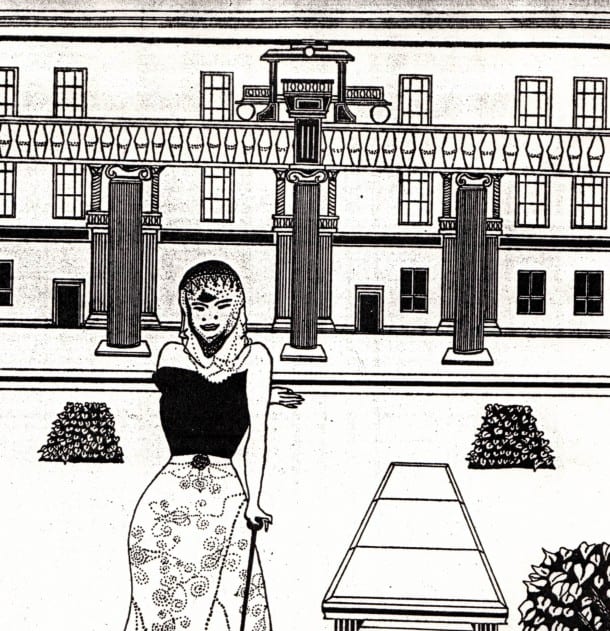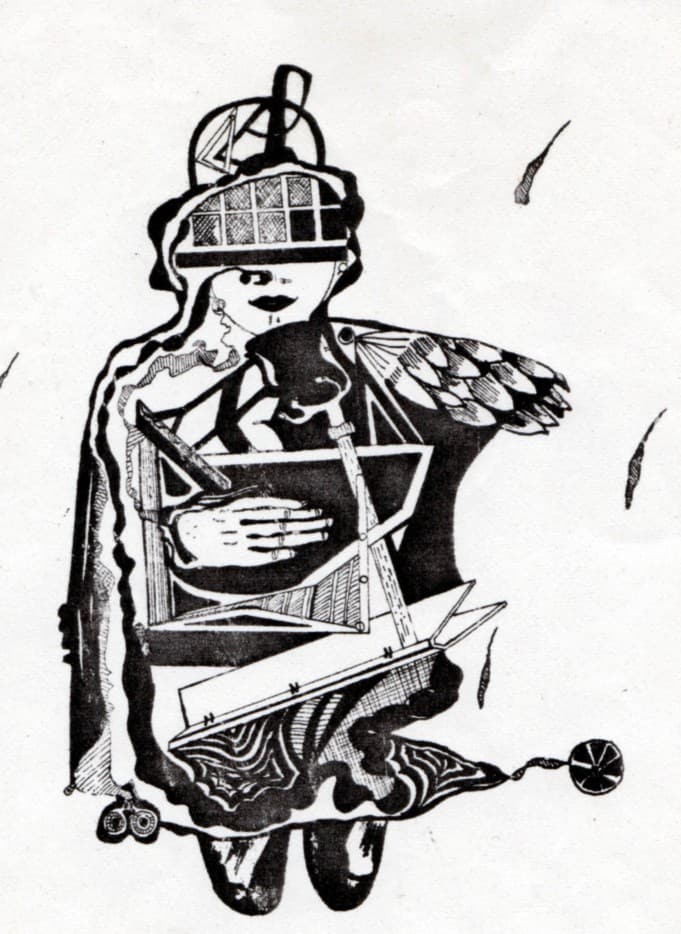Welcome to another special Stark Insider feature as part of our arts and cultures perspective series. Deniz Hellberg is a playwright and professor of theatre history. Interested in contributing? Write us at info@starkinsider.com.
Outside the Absurd drama of the 1950’s, but very closely connected to it, stands still today Jean Genet with his unique dramas of the criminal and outcast – absurd plays who had a very strange fate in France and rest of Europe. This was a time when Genet’s challenging personality in defiant opposition to all official and moral concepts blocked his upcoming recognition as an important writer and poet. Sartre´s famous essay who stated Genet as an existential literary hero did not change the controversy about the person or his plays.
Director Jouvet was the first one who staged Genet in 1946, when he performed Les Bonnes (The Virgin game) on his Athenée teater, after convincing Genet to concentrate the play’s four acts into a one-act performance. The press reception was remarkably controversial. And The upcoming performance at Haute-Sur-veillance, which is directed by Genet himsel failed to encourage him to continue the path as a playwright. A re-shaped version of Les Bonnes at the Theatre Huchette in 1954, directed by Tania Balachova, presented the play significantly much better than Jouvet’s initial performance, but it still could not create a desirable impression in the French press and abroad.
In 1956, Genet completed Le Balcon (The Balcony), a play which is considered today as a post absurdist masterpiece whose fate on the 1950’s theater scene was extremely shaky and odd. The first performance took place in April 1957 at Arts Theatre Club in London, where the British censor, The Lord Chamberlain, did not receive access to the text. The author also protested vehemently against director Peter Zadek’s staging of the play, which takes place in a brothel, and accordingly to the author who should have been presented “with
the solemnity as a sermon in a magnificent cathedral.” Peter Zadek’s extremely modest and minimalistic stage version of The Balcony did not fully manifest the play’s qualities for sure, but the performance in the small stage with so limited resources was nonetheless an important theatre event. The importance of the `small stage` for the new drama, which developed after the Second World War and the Marshal plan, was once again confirmed
When The Balcony finally received the first French performance at French Théåtre du Gymhase in May 1960, after many initial difficulties with censorship authorities, the actual performance became quite the opposite of Zadek’s previous settings. Peter Brook’s pompous settings with Marie Bell as a main actor, made The Balcony a fashionable opera performance, excluding many parts from the original text, both of which Genet intensively hated. The author, who under all productions of his dramatic pieces continued to work with his text through ongoing repetitions in France and abroad, gave now up and left Paris before the premiere. The first successful performance seems to have been the Berlin version in 1958.
Genet’s theater is still today dramatic visionary and poetic. It is a projection of an inner world made of dreams, in which violence and beauty together mingle with ritual language and are used as a magic divine agent.
Genet’s real breakthrough in Paris took place in November 1959, when Roger Blin staged Genet’s Les Négres (Negroes) at Theatre de Lutece with a group of colored actors, called Les Griots. They mimicked elements of Genet’s theater and all its ritual aesthetics which reminds of Artaud. Genet commented himself that the oriental theater tradition made him, just like it did for Artaud, consider that the western theater tradition was too coarse, rude and full of falsification of western history.
In 1961 came Genet’s next play, Les Paravents (The Screens). In this play, Genet clearly took sides with the Arabs in the ongoing Algeria conflict, which ultimately made a French performance impossible. In May 1961, the small Schloss Park Theater in West Berlin, staged the first performance of Les Paravents and it became a huge success.

Genet’s theater is still today dramatic visionary and poetic. It is a projection of an inner world made of dreams, in which violence and beauty together mingle with ritual language and are used as a magic divine agent. The outcast and criminals become saints and angels from a hidden world made of violence, flowers and sperm. It is that Baudelaire’s Les Fleurs du Mal transform into a theater and drama – a description which have been used by some regarding Genet’s drama, and which probably is not a very sufficient description. His connection with the theater tradition of the Absurd is the primary lack of conventional action, internal consistency of the structure and social identity in the narrative. Today Genet is hardly staged in many western countries. His drama is mostly excluded from scenes in the Nordic countries. His assumed conservatism (he defended the prison colonies in France and capital punishment until his death) and the lack of solidarity for minorities and gay rights still made him out of date in the politically correct theatre of today which is funded by government substitutes. Genet is still highly controversial and cannot easily be politically rehabilitated, regardless of cultural political purpose and ambition.
But Genet’s drama is primarily based on the state of a poetic mind, rather than a focus on dramatic sequence and political standpoint for sexual and racial minorities. The writer believed in the “beauty of the criminal and the punishment as a sacral act”. Genet does still convince with a psychological truth and an `absurd` reasoning in a genuine literary poetic form. Genet mercilessly condemns the dominant, ever-judgmental, self-righteous and hypocritical society. It could perhaps be called the `theater of crime`, and a drama that confronts the spectator with the bitter hardcore of existentialism. Genet’s dramatic poetry is so true and original in his anger and poetic visions that the sacral tone and smell of trash cannot be separated from each other. Genet’s drama is more genuine and actual than ever. We can only hope that more theatres and ensembles have the courage to stage him.
Illustration by Mark Szawlowski. London-born Szawlowski has a professional history of 20 years, during which he has worked as a reporter, editor and illustrator. For several years, Szawlowski has drawn the first and only cartoon strip to appear in Time Out Istanbul in English.


